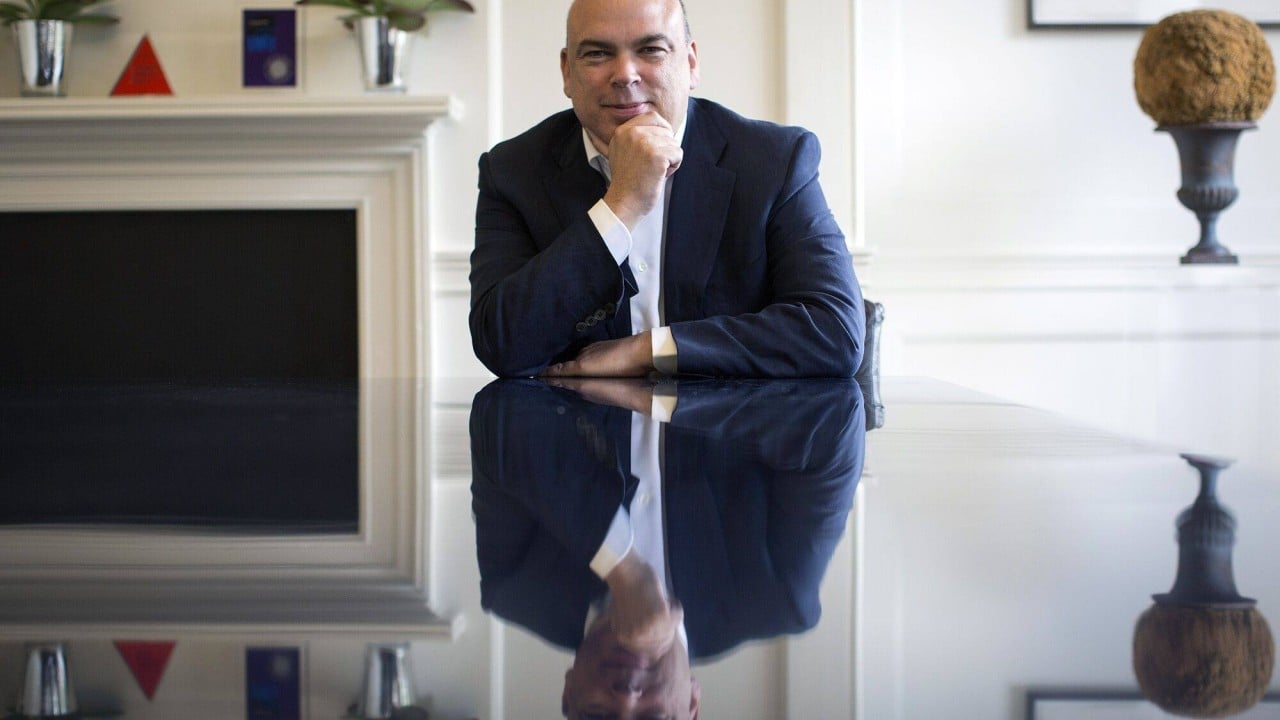Once dubbed Britain’s “Bill Gates”, tech entrepreneur Mike Lynch, whose body has been recovered from his sunken superyacht off Sicily, had only recently been cleared of fraud charges in the US.
The 59-year-old businessman was acquitted in June by a San Francisco court after a decade-long legal battle with US firm Hewlett-Packard, but the allegations tarnished his image as a UK tech success story.
Since returning home, Lynch – an adviser to two British prime ministers – had criticised the government for allowing his extradition to the US in the first place.
“I am looking forward to returning to the UK and getting back to what I love most: my family and innovating in my field,” he said following his acquittal.
But in a tragic twist, he would perish on the Mediterranean celebrating his victory on a cruise with his family and the friends who had helped him through the ordeal.
Born to working-class Irish parents in Essex, east of London, in 1965, the academically bright Lynch won a scholarship to a private school.
He went on to study natural sciences at Cambridge University, where he got a doctorate.
Lynch had described the fraud trial in the United States as a life-altering moment for him in an interview with the Times newspaper last month.
“It’s bizarre, but now you have a second life. The question is, what do you want to do with it?” he said.
Lynch and his family were aboard his luxury yacht Bayesian near Palermo with friends and colleagues when it was struck by a sudden storm in the early hours of Monday.
His wife, Angela Bacares, was among the 15 people rescued, but his daughter Hannah, 18, is still missing.
Italian rescuers have now recovered five bodies, and her fate remains unconfirmed.

Lynch and his wife, who also had an older daughter aged 21, had a combined fortune of £500 million (US$648 million) according to the latest Sunday Times “Rich List”.
He owed much of that wealth to his software firm Autonomy, which he founded in 1996 in Cambridge and turned into a leading British tech company.
Autonomy’s search software was informed by Bayesian learning frameworks, inspiring the name of the ill-fated yacht.
Lynch sold Autonomy to HP for US$11 billion in 2011 in a mega-deal which raised eyebrows at the time.
Just one year later, HP reported a write-down of US$8.8 billion – including more than US$5 billion it attributed to alleged inflated data from Autonomy – plunging Lynch into the fraud case he spent over a decade fighting.
US prosecutors accused him of taking part in a massive scheme as Autonomy’s chief executive to deceive HP by pumping the value of the company.
Lynch was extradited last year and spent a year under house arrest before being cleared.
He could have faced two decades in jail, an ordeal the entrepreneur said he would not have survived due to various medical conditions.
Lynch – who made around US$815 million from the Autonomy sale – always denied the fraud charges, accusing HP of making him a scapegoat for its own failings.
A dog lover, he owned two dachshunds and four sheepdogs, and had homes in both London and Suffolk where he had a farm.
He was honoured by Queen Elizabeth in 2006 with an Order of the British Empire (OBE) for his services to enterprise and appointed to the board of the BBC the same year.
After the Autonomy sale, he founded venture capital firm Invoke Capital, which was an early investor in cybersecurity firm Darktrace.
However, despite the US acquittal this year, the legal saga was not over for Lynch.
In 2022, London’s High Court ruled in a civil fraud case that HP had been duped and had overpaid for Autonomy.
The court has yet to rule on the billions of dollars in damages claimed by the US group.
David Yelland, a reputation management adviser who described Lynch as a client and friend, said in an X post it was “devastating” to think he had lost his life just as he had began to rebuild it.
“His entire life is one of beating the odds in the most extraordinary of situations,” Yelland added.


